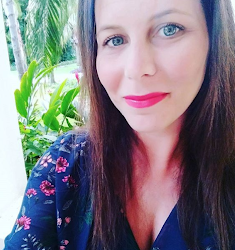It's noon and the VIA train I'm riding from Aldershot to Ottawa has only just served coffee. It's the pick-me-up I needed to begin blogging, something I hope to do quite a bit over the next few days as I retrace my steps in Ottawa — my first solo trip to my previous home in a few years. Along with the annual Canada Day party (which I missed last year), I am looking forward to doing some of the bookish things I loved while living in the nation's capital, including spending hours in The Book Market on Dalhousie, reading on the lawn of Parliament Hill, and possibly a brief trip to the Library and Archives.
Instead of choosing one book to bring with me, I chose four — one half of me indecisive the other half ambitious. Since boarding the train just over four hours ago, I have read a quarter of Joanana Adorjan's memoir, An Exclusive Love, a thoughtful portrait of her grandparents, Hungarian Jews who survived the Holocaust, later choosing to end their lives together in old age. Memoirs have always been my genre of choice, and this one is already gripping me.
Another selection is a classic — Kerouac's On The Road, which was a Christmas gift from my dad, who couldn't believe I hadn't read it, insisting I get to it right away! It took me a few months, but it's now on the top of my reading list.
Being on the train with a pile of books on the fold-down tray in front of me reminds me how much I love travelling, and how much I miss the regular commute between home and Ottawa, which I knew well as a student at Carleton. I've graduated from the Greyhound bus to the VIA train, a slightly smoother ride. I can't help but take a look to see what people are reading around me. A woman across the aisle is reading Trevor Cole's latest, Practical Jean, and I'm tempted to ask her about it, but she keeps drifting off to sleep.
The train is somewhere between Ottawa and Kingston now, putting me just about an hour away from my stop. To save a few dollars, I will be staying in the Carleton residences, a brief home I moved into almost nine years ago. I'm looking forward to some bits of nostalgia, and as much reading time as I can possibly fit in.









